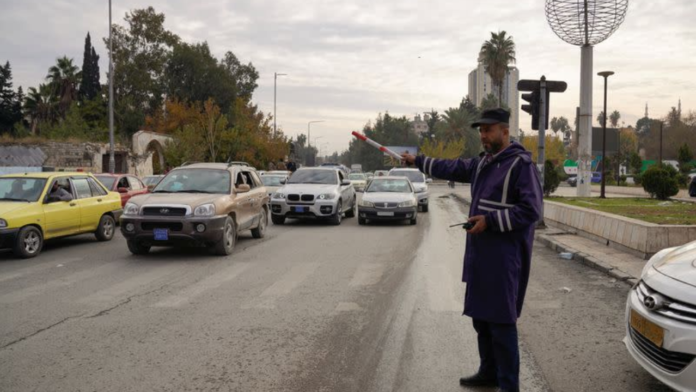A week after Islamist rebels seized Syria’s second-largest city, in a surprise advance deep into government-held territory, Aleppo is slowly coming back to life.
A night-time curfew has been lifted. Bread has returned to bakery shelves. Traffic police wave cars through intersections and internet coverage has improved as a rebel-linked telecoms network has expanded its reach, according to half a dozen residents and Reuters footage.
These measures are part of an effort by the rebel alliance spearheaded by Hayat al-Tahrir al-Sham (HTS), a former Al-Qaeda affiliate formerly known as the Nusra Front, to show Syrians – and the West – that it is a viable alternative to President Bashar al-Assad, analysts say.
Islamist HTS, headed by Abu Mohammed al-Golani, is still designated as a terrorist group by the U.S., Turkey and the United Nations. It has spent years trying to soften its image.
“We expected the situation to be very bad, but the young men dealt with the city very well,” said Mohammad Khalil, 52, a tourism company owner, referring to the rebel fighters, while noting that the water supply was patchy despite the return of some services. The rebels have some experience of civilian affairs.
HTS, which broke from Al-Qaeda in 2016 and says it poses no threat to the West, already held swathes of the adjacent province of Idlib, where it established an affiliate civil administration called the Salvation Government that has governed close to three million people for much of the past five years.
There, it has elected cabinets of ministers, made the Turkish lira legal tender and even set up a mobile network called Syria Phone, now extended to Aleppo. It has also avoided more extreme interpretations of Sharia law, the International Crisis Group think tank has said.
But new challenges come with the rebels’ expansion to Aleppo, where Assad drove a previous rebel coalition out of areas they controlled after years of siege and Russian-backed bombardment that left deep scars on the ancient city, a UNESCO World Heritage site.
Both the city and the province of the same name are home to historic communities of minorities including Syrian Christians, Armenians, Kurds and Shi’ite Muslims, who like many other Syrian Muslims have feared throughout Syria’s nearly 14-year war that Islamist rule would threaten their way of life.
Seeking to reassure Aleppo residents including minorities, journalists and state employees, HTS has published statements via text message saying its control of the city would not put them at risk. It also promised it would keep basic services running.
So far, Christians have largely remained in the city, and on Sunday they held mass, which was attended by some rebels.
Unlike Idlib, where opposition rule was already established in much of the province as the Salvation Government installed its administration, the rebels are now expanding into government strongholds in a lightning advance, pressing their sweep past Aleppo another 130 km (80 miles) south into the city of Hama, and possibly beyond.
“The challenges are huge and HTS knows it,” said Navvar Saban, an analyst at the Istanbul-based Harmoon Centre, citing the growing population under rebel control that require functioning services.



